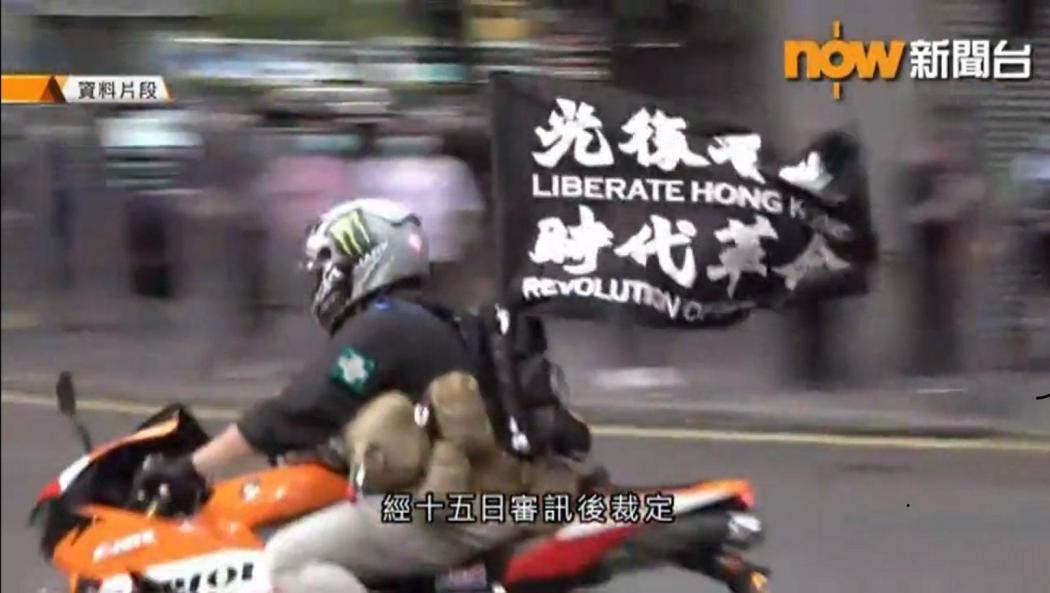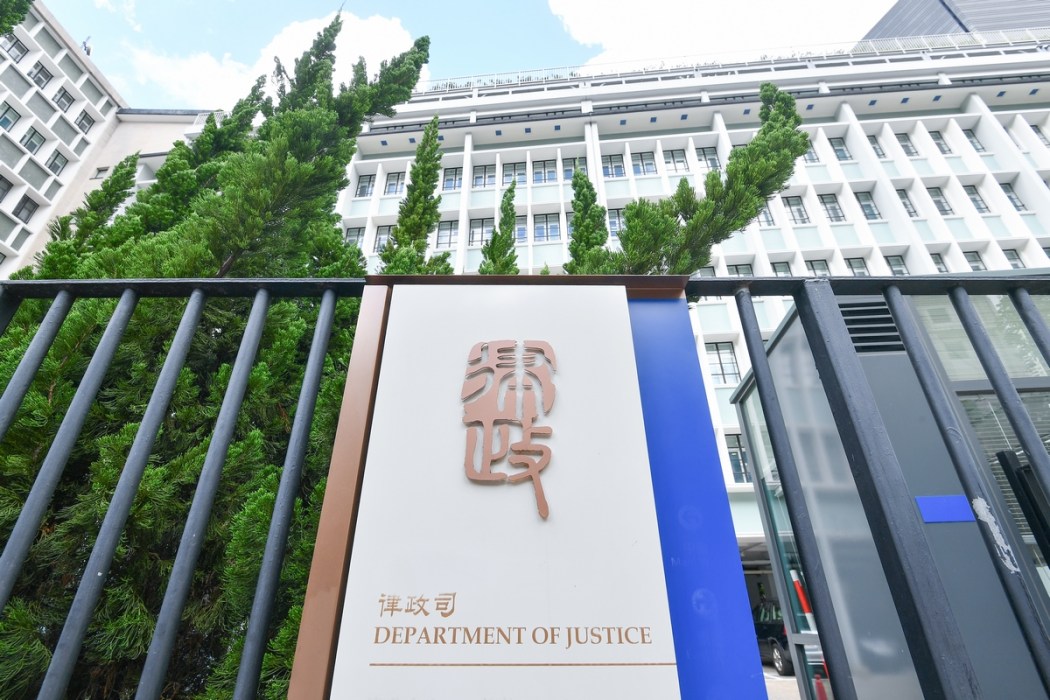The first person found guilty under the Beijing-imposed national security law has been ordered to pay over HK$1.38 million in court fees for his failed legal bids, including one lodged against the decision to try him without a jury.
Tong Ying-kit was sentenced to nine years in prison last July after he was found guilty of committing incitement to secession and terrorist activities. Before the trial began, he filed – and lost – two legal bids.

The Department of Justice wrote to Tong and his lawyers in March and May detailing the relevant proceeding fees, Ming Pao reported on Monday.
The first bid was an application for a writ of habeas corpus – a legal process implying that one’s detention was unlawful – submitted in August 2020 after his bail was denied. The High Court turned down the application and ordered Tong to pay the proceeding costs.
The second bid involved Tong’s challenge of the Department of Justice’s decision to try him in front of a panel of three handpicked national security judges instead of a jury. The High Court rejected Tong’s application for a judicial review of the decision in a May ruling last year and dismissed his subsequent appeal.

The court did not order Tong to cover the proceeding costs of the second challenge as the national security law was “still new to Hong Kong” and there was “a strong public interest element.”
However, the court held Tong liable for the costs of the appeal as the judges ruled that he had chosen “to pursue a plainly unarguable appeal after losing… on substantially the same grounds.”
Judicial reviews are considered by the Court of First Instance and examine the decision-making processes of administrative bodies. Issues under review must be shown to affect the wider public interest.
The exact amount of the proceeding fees was not previously known. The newspaper cited a source saying that Tong had not made the payments.

Tong, then 23, was arrested over driving a motorcycle with a flag reading “Liberate Hong Kong, revolution of our times” – a popular slogan among protesters in 2019 – into three police officers on July 1, 2020, the day after the national security law was enacted.
The slogan was banned by the government a day after Tong’s arrest for carrying connotations of “pro-independence, secession and subversion.” The High Court later ruled that the phrase was capable of inciting others to commit secession.
Bankruptcy fears
According to letters issued by the Department of Justice acquired by Ming Pao, Tong was ordered to pay over HK$736,000 for the jury trial appeal before March 14. In a letter sent in May, it was further demanded that Tong pay around HK$647,000 to cover his writ of habeas corpus application.
In a reply to Ming Pao written from prison, Tong said he felt helpless over the large sum of court fees owed. “If I go bankrupt, I don’t know what I can do in the future,” he wrote.

He said he filed the judicial review application because he thought it might be unfair to him or other future national security defendants to face trial without a jury, and did not think he would lose the bid.
The national security law, enacted in June two years ago after months of protests, criminalised subversion, secession, collusion with foreign forces and terrorist acts, which were broadly defined to include disruption to transport and other infrastructure.
The move gave police sweeping new powers, alarming democrats, civil society groups and trade partners, as such laws have been used broadly to silence and punish dissidents in China. However, the authorities say it has restored stability and peace to the city.
Support HKFP | Policies & Ethics | Error/typo? | Contact Us | Newsletter | Transparency & Annual Report | Apps
Help safeguard press freedom & keep HKFP free for all readers by supporting our team
























